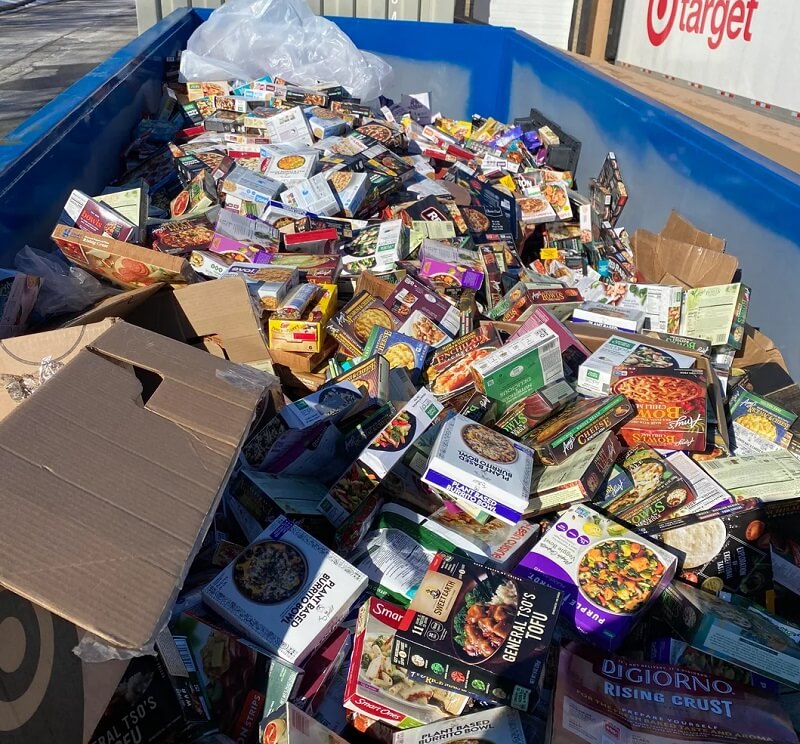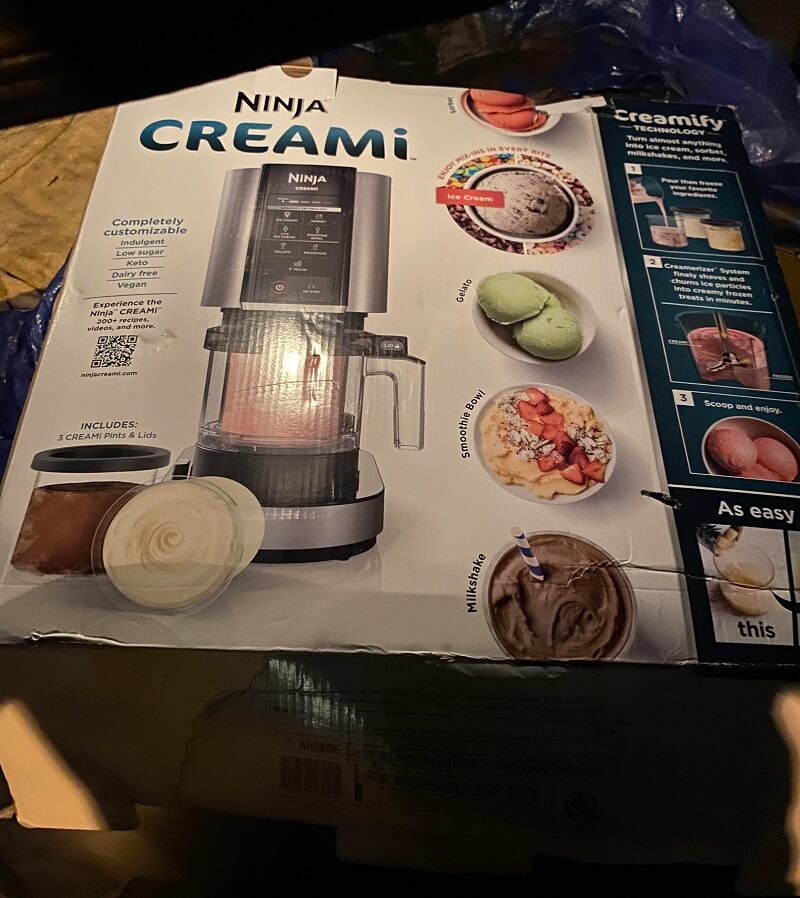If you're a dumpster diver, finding several dumpsters full of unopened food, beauty products, and kitchen appliances is like hitting the jackpot.
In the grand scheme of things, however, business waste like this has a major environmental impact when you consider that thousands of companies dispose of unsold goods every day.
One Redditor shared their dumpster diving haul to shed light on this overlooked issue, which sparked a lively discussion about how businesses should address their waste.


What's happening?
The dumpster diver posted over a dozen photos of their impressive find, including unopened frozen foods from Target and fresh produce, snacks, and toiletries from other stores. They even scored a fully functional Instant Pot and a Ninja Creami ice cream maker that were only thrown out because the boxes were dented.
"A little peek of what we find dumpster diving," they said in the post. "Maybe a little more than just *mildly* infuriating."
In later comments, the OP said the tossed frozen food was due to a freezer outage at Target, but they were unsure why the other foods were thrown away since none of them had expired.
"My blood is officially boiling," someone said.
"That's America for ya ... we're too prosperous for our own good," another commented.
Many people pointed out that stores must throw away thawed or expired foods because of liability issues and food safety concerns. However, the bread and boxed goods could've likely been given to a food bank or charity — an oversight that can often come down to the actions of one local employee or manager rather than a corporate policy.
Why does food waste matter?
Over 47 million Americans — including 14 million children — face food insecurity, per Feeding America. However, it's estimated that the nearly one billion people facing hunger worldwide could meet their nutrition needs on less than 25% of the food waste produced in the U.S., UK, and Europe, according to Recycle Track Systems.
Feeding America estimates that 92 billion pounds of food goes to waste annually, or nearly 40% of the food supply in the U.S. alone.
While great strides are being made to compost and recycle more food, the FDA reported that only 4% of food in America is composted. The rest ends up in landfills or incinerators, releasing planet-warming pollution as it decomposes or burns.
Are companies doing anything about this?
Target says it is working hard to tackle food waste across its supply chain, achieving its goal of reducing operational food waste by 50% compared to 2017, according to a company sustainability report. It has also established organics recycling and composting programs at nearly 1,700 of its facilities and donated 113 million meals in 2023.
However, donating food to charities can be iffy for businesses, as they must ensure it's safe for consumption first, so generally this must be done when the food is still able to be sold but perhaps the items are going to thaw or were marked for clearance to free up room for other products.
During power outages, stores such as Kroger and Trader Joe's have given away thousands of pounds of food, proving that grocery chains can get perfectly good food into the right hands and keep it out of landfills.
What's being done about food waste more broadly?
Food waste reduction apps such as Flashfood and Too Good to Go are a great way for customers to get discounted prices on groceries and restaurant foods that would otherwise be headed to landfills. The online grocer Misfits Market is also tackling food waste by selling "funny-looking produce" — think vegetables that grew in an odd shape — at a 20% discount, which helps people's wallets and the planet.
But you don't need to own a company to make a difference. Small changes such as growing your own food, composting your food scraps, and getting creative with leftovers can make a big impact.
Join our free newsletter for good news and useful tips, and don't miss this cool list of easy ways to help yourself while helping the planet.









